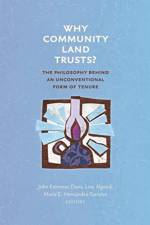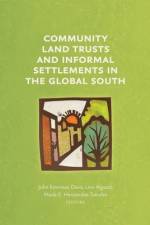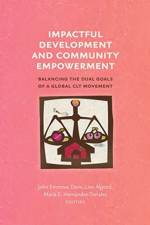- The Philosophy Behind an Unconventional Form of Tenure
von John Emmeus Davis
16,00 €
The community land trust (CLT) is a transformative strategy of community-led development on community-owned land that is taking root across the Global North and is now spreading to the Global South. CLTs produce and preserve affordably priced homes, retail spaces, urban (and rural) aglands, and a variety of neighborhood facilities – all developed under the auspices of people who live nearby; all managed to remain permanently affordable for people of modest means. Because of the way these assets are owned and because of the way these organizations are governed, CLTs offer new answers to fundamental questions of “who decides?” and “who benefits?” that should be asked whenever governments, charities, or NGOs invest scarce resources in improving the places where people live. CLTs are not all alike. Among the hundreds that exist in a dozen different countries, there are numerous variations in how these organizations are structured, how their lands are utilized, how development is done, and how assets are stewarded for future generations. What is called a "community land trust" can vary greatly from one locality to another. Despite this lack of uniformity, advocates and practitioners have advanced a consistent set of arguments in favor of this strategy. Their multi-faceted case for the CLT says, in essence: When land is owned for the common good of a place-based community, present and future; when development is done by an organization that is a creature of that community, rooted in it, accountable to it, and guided by it; when stewardship is deliberate, diligent, and durable . . . development is more likely to be both equitable and sustainable, especially in places populated by classes and races who have long been disadvantaged and disempowered.The six essays contained in this monograph are drawn from a lengthier volume entitled On Common Ground: International Perspectives on the Community Land Trust. Most of that volume’s twenty-six chapters were focused on describing conditions, organizations, and polices that precipitated the appearance of CLTs in a range of urban and rural settings. But a number of chapters also looked closely at the philosophy behind this unconventional approach to real property, exploring various ethical, political, and practical justifications for the CLT. These essays were selected for the present monograph. Together, they provide a coherent and compelling rationale for why community land trusts are worthy of consideration, implementation, and support.







